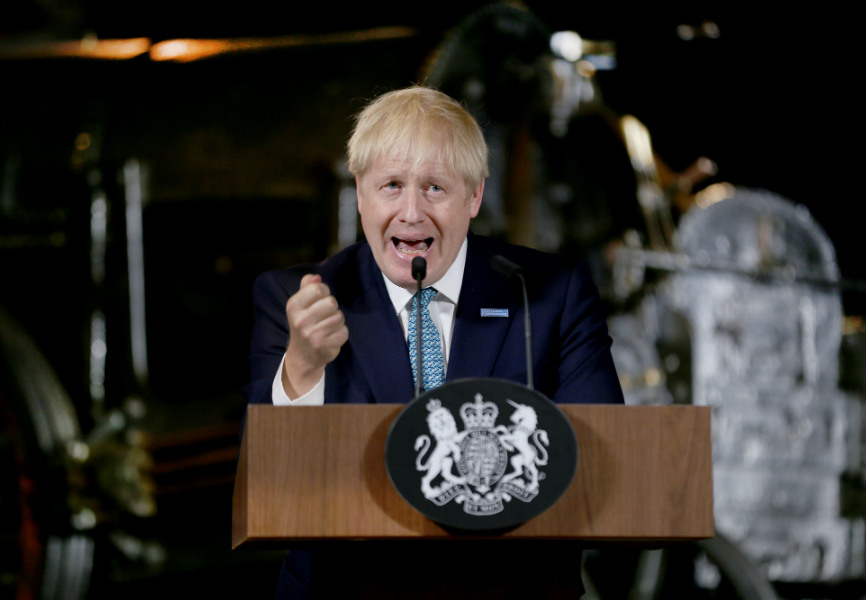With a promise to take the UK out of the EU on 31 October “with or without a deal,” Boris Johnson won a resounding victory in the ruling Conservative Party's leadership contest last week to become the country's next prime minister. The flamboyant former mayor of London replaces Theresa May, who was forced to step down after nearly three years of failed attempts to lead the country out of the 27-nation union.
A champion of the “Leave” campaign ahead of the Brexit referendum in 2016, Johnson has appointed a cabinet that largely consists of like-minded figures. In so doing, he has signaled his commitment to follow through on his pledge to exit the EU by 31 October—the latest of many deadlines negotiated with the bloc to finish the so-called Article 50 process—even if there is no new trade deal between the two sides. Johnson has appointed prominent “leavers” to head up efforts to prepare the country for a no-deal exit, a move that would bring back high tariff and nontariff barriers to trade, risking substantial damage to the economy.
Yet the Johnson government is likely to follow a dual track, continuing negotiations over an amended withdrawal agreement with Brussels even while it continues preparations for a “no deal” exit. The new prime minister believes the EU will give ground when it realizes that he, unlike his predecessor, is serious about forcing a costly no-deal exit. What type of deal might satisfy Johnson and other hardline Brexiteers in parliament is unclear, but it would likely involve—at a minimum—time limiting the so-called Irish backstop from the withdrawal agreement negotiated by May.
Designed to avoid reinstituting border controls between Ireland, an EU member, and Northern Ireland, which is part of the UK—a prospect that evokes painful memories of the sectarian violence that racked Northern Ireland for decades—the Irish backstop would keep the UK in a European customs union for the foreseeable future. In other words, the country would be bound by many EU rules and regulations without having any say in the making of them, and it would also be prohibited from seeking independent trade deals with other nations.
But Johnson is playing a dangerous game by brandishing the prospect of a no-deal exit to get a better agreement from Brussels. His government is supported by a thin parliamentary majority, and the breadth of Johnson's cabinet shakeup—he dismissed 17 of the 23 members of May's cabinet—could backfire. Those forced out will bolster the already sizable ranks of lawmakers who view leaving the EU without a deal as an irresponsible move. So the new prime minister is at risk of triggering a parliamentary backlash that could lead to early elections—if he does not pro-actively seek those himself.
The mood among Conservative lawmakers has turned slightly against the option of voting to oust Johnson in a no-confidence vote given their fears that the Labour Party could win the elections that would probably follow, installing Labour leader Jeremy Corbyn as the next prime minister. But they could change their minds if they cannot find another way to prevent a no-deal exit. Another possibility is that Johnson himself could call early elections to try to secure a mandate for his Brexit plans.
Even if the Johnson government manages to keep parliament onside and avoid early elections as he pursues a revision to the withdrawal agreement in Brussels, the EU, aware of the government's weak position, will be disinclined to make any big concessions. With Johnson seemingly trapped between UK lawmakers opposed to a no-deal exit and Brussels officials loath to make substantial changes to the withdrawal agreement already on offer, the path to Brexit has not gotten any clearer.
Read *Brexit in our Top Risks for 2019 report and What Boris Johnson's premiership means for Brexit and the UK.

 UK Prime Minister Boris Johnson. REUTERS.
UK Prime Minister Boris Johnson. REUTERS.
